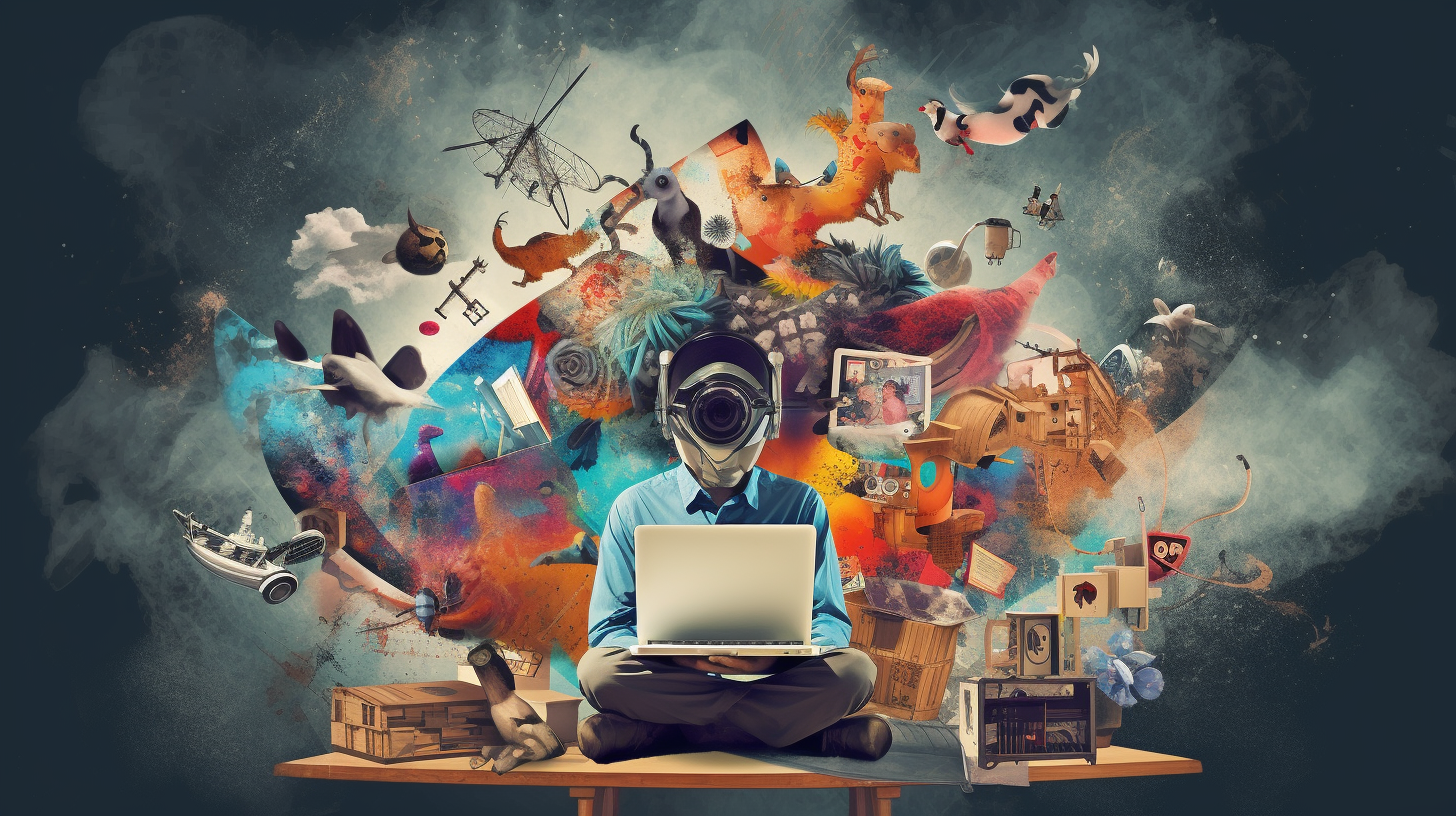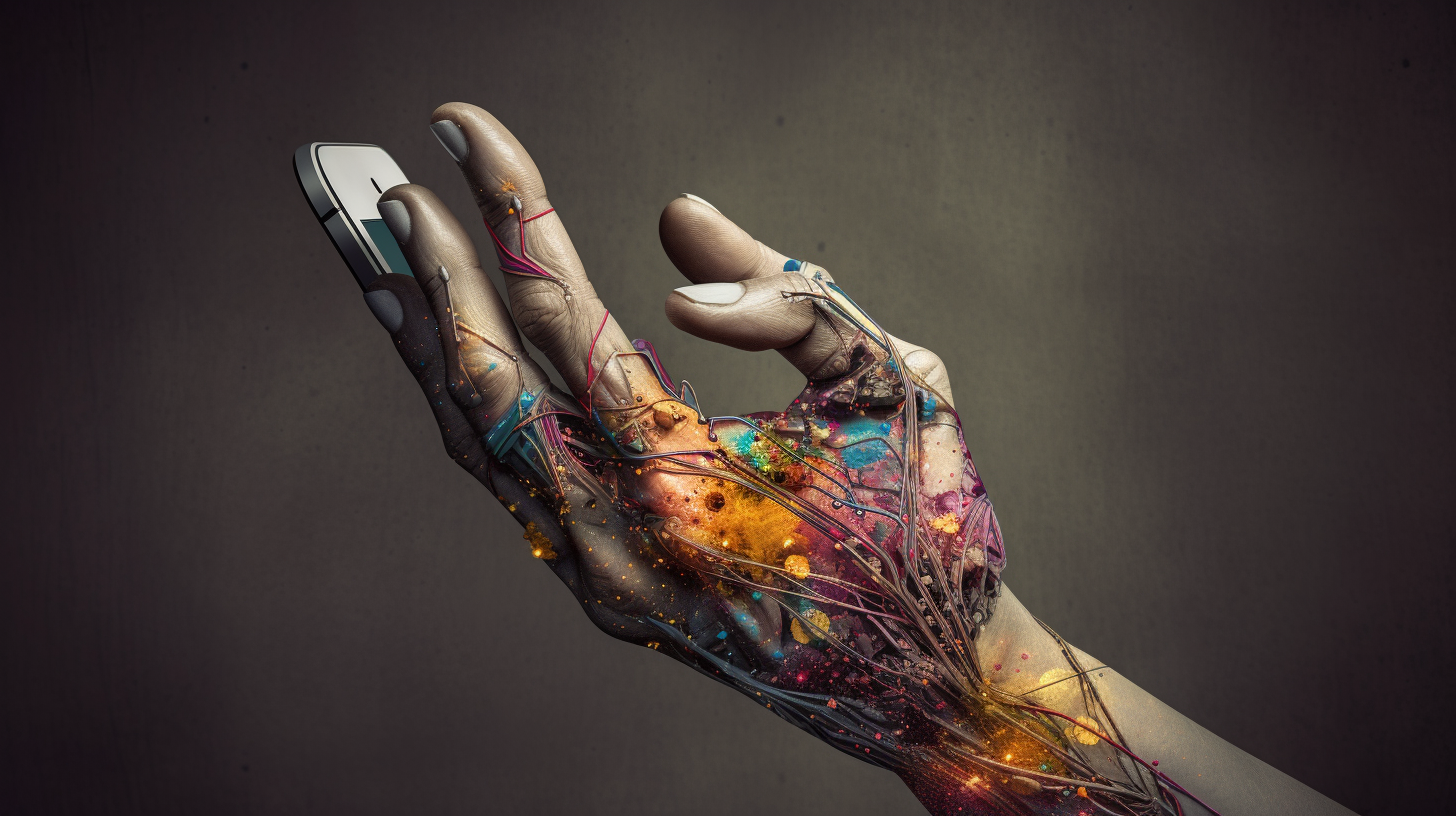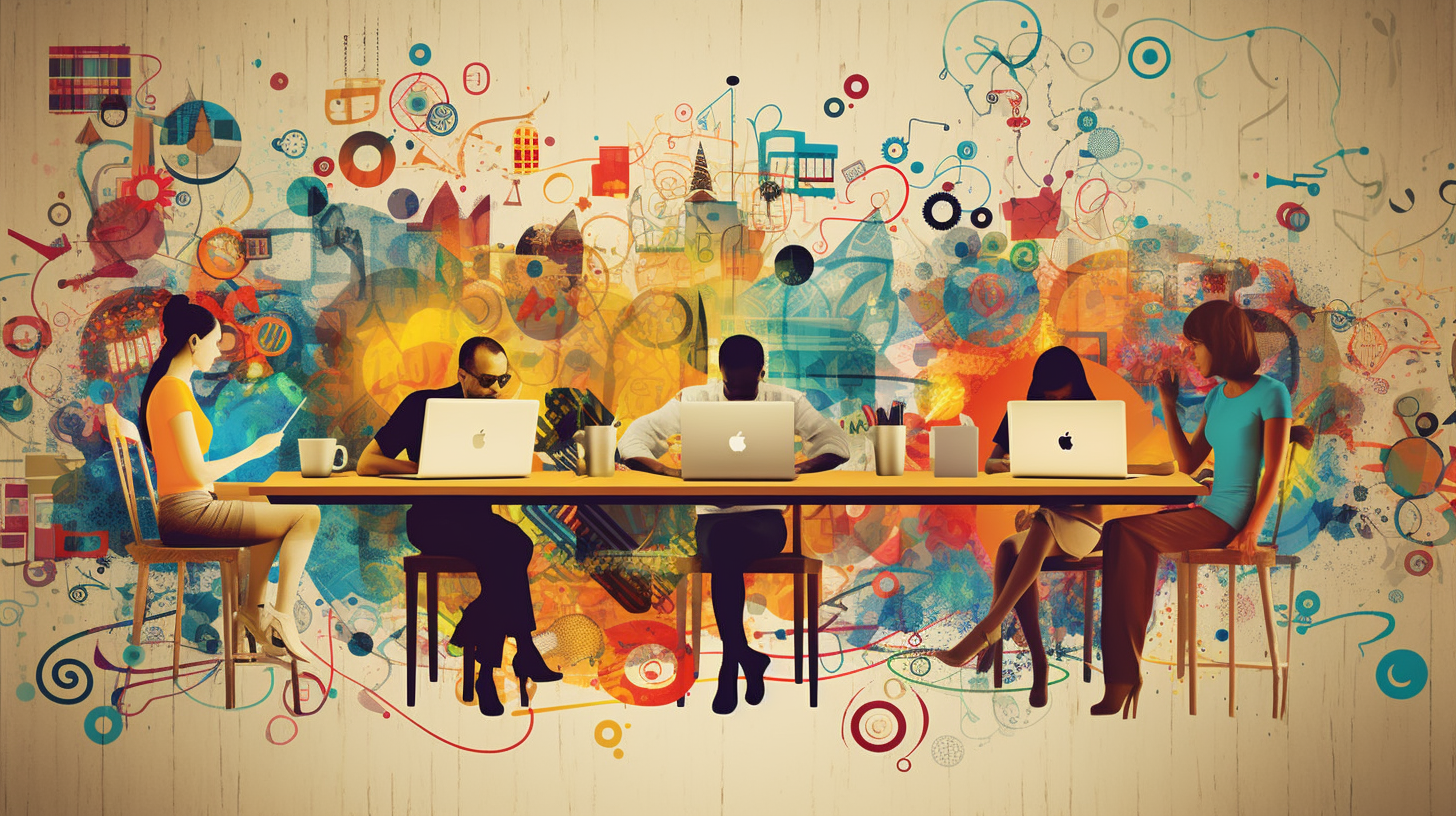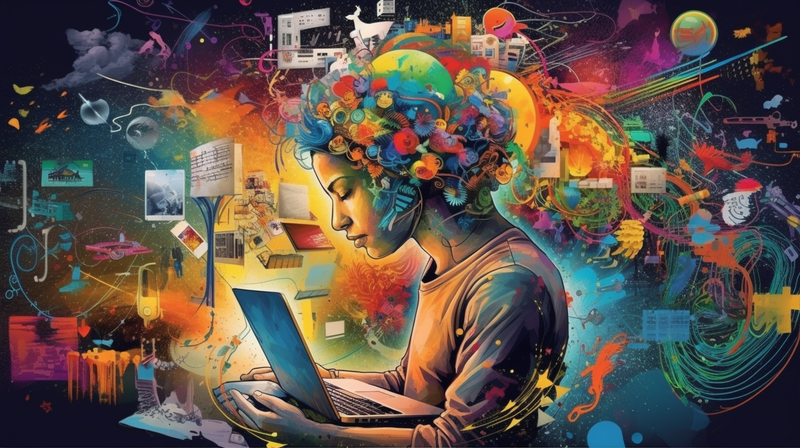The Democratization of Creativity: Empowering Individuals through Technology
In our rapidly advancing world, the intersection of technology and creativity has sparked a profound transformation, redefining how we perceive and engage with art. No longer confined to the elite few or the chosen ones, the democratization of creativity has emerged as a revolutionary movement, empowering individuals from all walks of life to embrace their inner artists. This article explores the profound impact of technology on the democratization of creativity, highlighting how it has provided the tools and community necessary to develop skills in thought leadership and foster a new era of expression.
Breaking Down Barriers
Traditionally, the realms of art, literature, music, and film were guarded by gatekeepers, limiting access to those deemed worthy. As a result, the pursuit of creativity was often shrouded in exclusivity, leaving many aspiring artists languishing in the shadows of unfulfilled dreams. However, the rise of technology has dismantled these barriers, democratizing creativity by making it accessible to all.
Through digital platforms and tools, individuals now have the power to create, share, and distribute their work to a global audience. Social media platforms like Instagram, YouTube, and SoundCloud have become launching pads for aspiring artists, enabling them to showcase their talents and gain recognition beyond traditional channels. In addition, the rise of online communities and digital content platforms has fostered a supportive environment where creators can connect, collaborate, and learn from one another, further fueling the democratization of creativity.

Empowering the Individual
The democratization of creativity has provided a platform for expression and empowered individuals to develop their skills in thought leadership. With access to online resources, tutorials, and educational media, aspiring content creators can refine their craft, learn new techniques, and acquire knowledge previously confined to academic institutions or costly workshops. This democratization of knowledge has given rise to a generation of self-taught artists, writers, musicians, and filmmakers who can now compete on a level playing field.
Technology has also played a crucial role in expanding the scope of creative possibilities. Advanced software, digital instruments, and editing tools have equipped individuals with the means to explore innovative avenues of artistic expression. In addition, the ability to easily manipulate sound, images, and words has opened doors to uncharted territories, allowing creators to push the boundaries of traditional art forms and craft new narratives that resonate with global audiences.

Changing the Consumption Paradigm
The democratization of creativity has not only transformed the way art is produced but also how it is consumed. With the rise of streaming platforms, e-books, and digital distribution channels, the traditional gatekeepers of art have been disrupted. For example, independent musicians can release their albums directly to streaming media, authors can self-publish their books, and filmmakers can showcase their work on video-on-demand platforms.
This shift in consumption patterns has created a space where artists can directly connect with their audience without intermediaries. Furthermore, it has paved the way for diverse and authentic voices to be heard, as individuals can now curate their artistic experiences based on personal preferences rather than relying on mainstream media. As a result, creativity is no longer confined to a select few but thrives in the diversity and inclusivity of individual expression.
Fostering Community and Collaboration
In addition to providing tools for individual creativity, technology has fostered a sense of community and collaboration among content creators. Online forums, social media groups, and digital platforms dedicated to various art forms have become hubs of inspiration, knowledge exchange, and mentorship. These virtual communities offer support, feedback, and networking opportunities that were once restricted to physical spaces.
The power of collaboration cannot be understated in the democratization of creativity. With technology facilitating remote communication and virtual collaborations, artists from different corners can come together to create transformative works. Whether it's a cross-cultural music collaboration, a joint visual arts project, or a co-authored literary piece, technology seamlessly integrates diverse perspectives, breaking down geographical and cultural barriers.
Redefining Success and Impact
As the democratization of creativity continues to reshape the artistic landscape, it is important to reconsider our notions of success and impact. In the past, success was often measured by commercial success or critical acclaim, reinforcing the exclusivity of art. However, in this new era of democratized creativity, success is increasingly defined by the ability to connect with audiences on a deeper level, provoke thought, and spark meaningful conversations.
The artistic impact is no longer limited to the number of copies sold or box office numbers. It extends to the transformative power of ideas, the ability to challenge norms, and the capacity to inspire change. Content creators become thought leaders in this paradigm, driving conversations and shaping cultural narratives. Through their work, they have the potential to challenge societal structures, shed light on underrepresented voices, and create a more inclusive and empathetic world.

Conclusion
The democratization of creativity, fueled by technological advancements, has revolutionized how we engage with art. It has shattered the barriers that once confined creativity to a privileged few, empowering individuals from diverse backgrounds to embrace their artistic potential. Furthermore, through digital platforms, tools, and virtual communities, aspiring content creators now have the resources and support necessary to develop their skills in thought leadership.
As we continue to witness this transformative movement, it is vital to recognize its profound impact on the consumption of art, the redefinition of success, and the fostering of collaborative communities. By embracing the democratization of creativity, we welcome a future where artistic expression is genuinely inclusive, empowering, and reflective of the diverse tapestry of human experiences. Together, let us embrace this revolution, unlocking the true potential of individual and collective creativity.

Plato Re-Imagined
This course offers 32 comprehensive lectures exploring most of Plato's dialogues. These lectures guide students toward a consilient understanding of the divine—a concept that harmonizes knowledge across disciplines and resonates with secular and religious leaders. As a bonus, Lecture #33 focuses on consilience, demonstrating how different fields of knowledge can converge to form a unified understanding.






